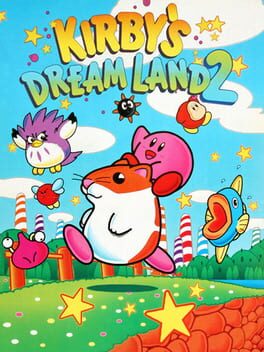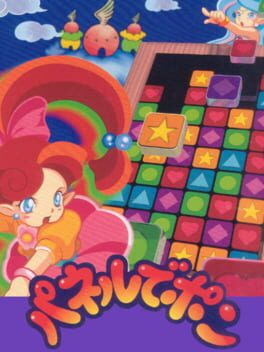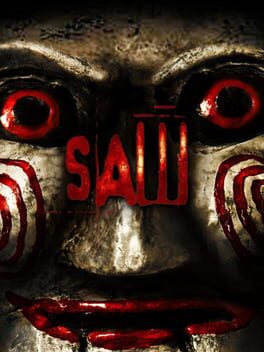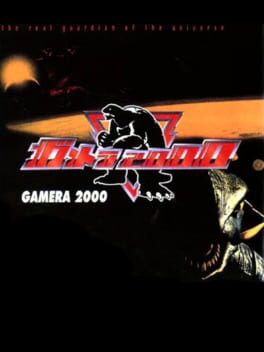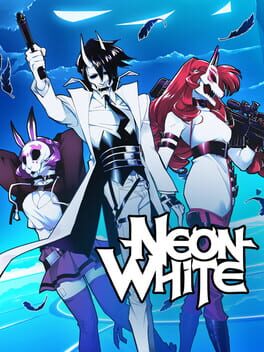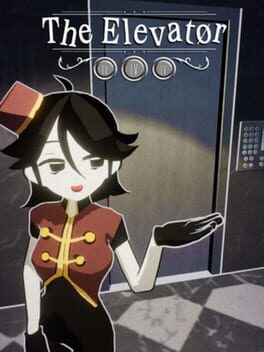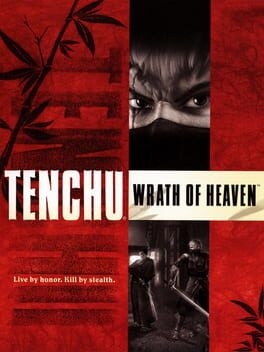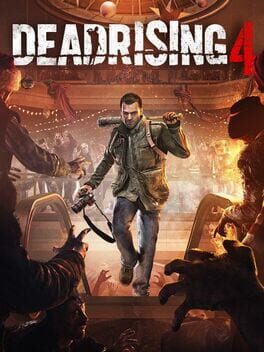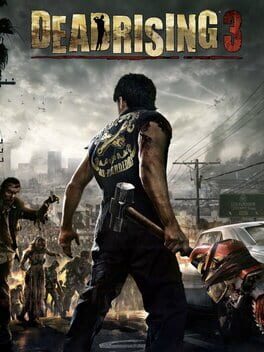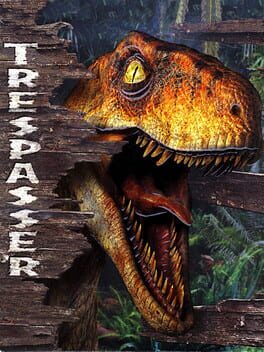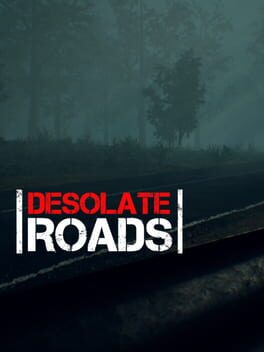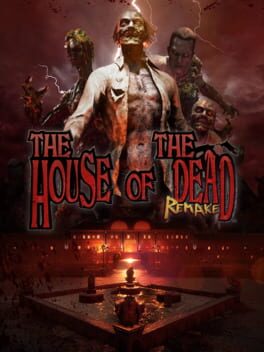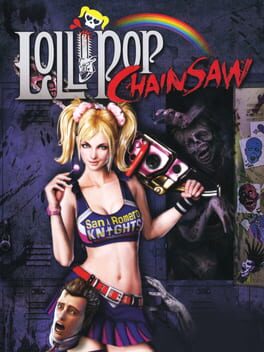Squigglydot
1995
It’s always going to be weird to me that this is the game that acted as the lynchpin for so many experiences in my life, both essential and easily avoidable. For all intents, its fine, right? It’s Kirby, still coming into his own, but identifiable as the super tuff pink puff that everyone with an ounce of good taste adores. Discussing the actual advancements of any Kirby game is a fool’s errand for all but the most studious of scholars in Dream Land, a topic already worn weary by a thousand writers before me. Plain and simple, this game matters less in the physical reality of what it is and isn’t, and more by where it resides, as this near-constant companion through my memories.
Dream Land 2 settled as permanent iconography, fragmented moments sculpted in grey-matter marble, pristinely preserved and gravely decayed. It was a series of monochromatic rainbows illuminating otherwise melancholic recollections, an eternal love that, even in its greyscale trappings, glowed in vibrant light. It was the life-or-death duel against the celestial duo, Mr. Shine and Mr. Bright, outside of a Wal-Mart in South Colorado, the endless attempts to dethrone the Dede-despot after school… It was lackadaisical searches for Rainbow Drops, late into the night, while talking to loved ones. I don’t want to pretend it’s more than it is, a story of a rose-tinted little guy and his Adorable Animal Friends™ (and Gooey), but perhaps it’s that same simplicity that ensures a presence in my mind.
Dream Land 2 settled as permanent iconography, fragmented moments sculpted in grey-matter marble, pristinely preserved and gravely decayed. It was a series of monochromatic rainbows illuminating otherwise melancholic recollections, an eternal love that, even in its greyscale trappings, glowed in vibrant light. It was the life-or-death duel against the celestial duo, Mr. Shine and Mr. Bright, outside of a Wal-Mart in South Colorado, the endless attempts to dethrone the Dede-despot after school… It was lackadaisical searches for Rainbow Drops, late into the night, while talking to loved ones. I don’t want to pretend it’s more than it is, a story of a rose-tinted little guy and his Adorable Animal Friends™ (and Gooey), but perhaps it’s that same simplicity that ensures a presence in my mind.
1995
Never forget. At any time, the Panel de Pon ruling class will silence you, they will eradicate your voice, they will render you unable to speak or express yourself, lest you be brought to a quick and malicious end.
Rise, humble laborer, ever-steady soldier of the working class. Build the brick walls that will shield you against those in power. Stage the Tetris Attacks that will levitate your disenfranchisement, and construct the foundation of a Puzzle League of your own.
In the face of evolution, do not hinder yourself by the restrictions of old, the classical repainting of history. Do not limit yourself to the predecessors of old; rise to the challenge of new experiences, lest you be cast aside by the waves of time.
Rise, humble laborer, ever-steady soldier of the working class. Build the brick walls that will shield you against those in power. Stage the Tetris Attacks that will levitate your disenfranchisement, and construct the foundation of a Puzzle League of your own.
In the face of evolution, do not hinder yourself by the restrictions of old, the classical repainting of history. Do not limit yourself to the predecessors of old; rise to the challenge of new experiences, lest you be cast aside by the waves of time.
2009
1997
2022
Subsonic steps bound off of idyllic tiles, a steadfast one-two sprint. Clasped tightly in his hand, divine intervention is executed by the thunderclap of .500 magnum, a heavenly send-off alternating between the gentle coaxing of automatic fire and the definitive blade of retribution. Closing in, denizens of hell launch bioluminescent bombardments, lethal brimstone sending you down a path 10,000 feet under. As if born to die, the demons are dispatched as quickly as they rise, beings materialized, analyzed, and pulverized within nanoseconds. Speed and focus become one, repetitions on idealized concepts pointing towards sublimity. Your holy arms holstered, your sanctified sword sheathed, you cast your sight upon diamond excellence, an eternity encapsulated in the blink of an eye. Now, beyond the safety of three-round bursts and lead ripostes, you see her.
Her heliotrope hues leave psychoactive cigarette burns; if true angels drive one to madness, her presence in Heaven is well established. Like sewing needles piercing taut eardrums, her voice spikes out, an aural trepanation. More lethal than chambered rounds and heavy ordinance, she implants in your brain the same innate fear that courses through you as you enter convention halls, the same fight-or-flight micropanic as the first step within a college’s Japanese Culture Club, for she is the eidolon of modern otakudom. When you breach the seal on Neon White’s world, what resides underneath isn’t the long-forgotten Y2K Japanimation mecca, but a puréed distillation of the wretched refuse of anime fandom, the Anitwitter and r/animemes congregation speaking in post-post-ironic references, where every man is either a razor-edged twink or a hulking himbo, and every woman either an e-girl yandere or a wannabe mommy-dom that covets humanized mediocrity. Buried under the pretense of being “by freaks, for freaks”, the reality of Neon White puts you in the nightmarish scenario of living through the dreams of the most typical of indie weeb softboys.
Such is the loop of Neon White: for every moment of precise platforming bliss, an hour of Young Thotticus making your amygdala fire on all cylinders, a century of watching history’s straightest couple verbally hate-fuck, an eon of remembering Tumblr-Sexy-Man-ified Junkrat saying “you were my Sasuke!”, an eternity of knowing that the core message of the game is that you have a moral imperative to forgive those who abused you in life, lest you literally go to Hell. Both sides of the equation, fraught and unstable, struggle to maintain a semblance of balance.
When Ben Esposito, Enemy of the People, claimed this project as a game “for freaks”, it masks the reality of what Neon White stands for. Decked in the style of the forums of yesteryear, Online Signature UI and Neocities buttons intact, with a heart beating to the 200bpm pulse of breakcore, the aestheticism of pre-Web 2.0 culture is broken by the asphyxiating smog of The Modern Anime Fan. Sincerity and passion die at the cross of venomous disingenuity, nailed down by ironic detachment and love in the key of “Waifu of the Month”. The work of Angel Matrix, the latest in rebrands of Esposito's predictable shtick, axes even the most optimistic of readings: Neon White is the new face of pretension, wearing the oh-so-relatable mask of an adored time for the sake of drawing attention, not out of love, nostalgia, or passion. Soullessness masquerading as soulful.
and someone please tell the writers that run-on sentences don’t read as like, relatable or quirky. It just looks bad. It’s like, your job to Make Text Read Good. come on.
Her heliotrope hues leave psychoactive cigarette burns; if true angels drive one to madness, her presence in Heaven is well established. Like sewing needles piercing taut eardrums, her voice spikes out, an aural trepanation. More lethal than chambered rounds and heavy ordinance, she implants in your brain the same innate fear that courses through you as you enter convention halls, the same fight-or-flight micropanic as the first step within a college’s Japanese Culture Club, for she is the eidolon of modern otakudom. When you breach the seal on Neon White’s world, what resides underneath isn’t the long-forgotten Y2K Japanimation mecca, but a puréed distillation of the wretched refuse of anime fandom, the Anitwitter and r/animemes congregation speaking in post-post-ironic references, where every man is either a razor-edged twink or a hulking himbo, and every woman either an e-girl yandere or a wannabe mommy-dom that covets humanized mediocrity. Buried under the pretense of being “by freaks, for freaks”, the reality of Neon White puts you in the nightmarish scenario of living through the dreams of the most typical of indie weeb softboys.
Such is the loop of Neon White: for every moment of precise platforming bliss, an hour of Young Thotticus making your amygdala fire on all cylinders, a century of watching history’s straightest couple verbally hate-fuck, an eon of remembering Tumblr-Sexy-Man-ified Junkrat saying “you were my Sasuke!”, an eternity of knowing that the core message of the game is that you have a moral imperative to forgive those who abused you in life, lest you literally go to Hell. Both sides of the equation, fraught and unstable, struggle to maintain a semblance of balance.
When Ben Esposito, Enemy of the People, claimed this project as a game “for freaks”, it masks the reality of what Neon White stands for. Decked in the style of the forums of yesteryear, Online Signature UI and Neocities buttons intact, with a heart beating to the 200bpm pulse of breakcore, the aestheticism of pre-Web 2.0 culture is broken by the asphyxiating smog of The Modern Anime Fan. Sincerity and passion die at the cross of venomous disingenuity, nailed down by ironic detachment and love in the key of “Waifu of the Month”. The work of Angel Matrix, the latest in rebrands of Esposito's predictable shtick, axes even the most optimistic of readings: Neon White is the new face of pretension, wearing the oh-so-relatable mask of an adored time for the sake of drawing attention, not out of love, nostalgia, or passion. Soullessness masquerading as soulful.
2021
2000
Reflections at the end of time.
Boundless animosity,
pirouettes in the name of hate
Nameless strangers, fate's precipice
Single / Double / Triple Bound
Serotonin extremity
Void expanse, nu-brutality
Ricochet, neo-star cowboy
Unknown faces in bold colors
Airborne madness, insanity
Bouncing Anaglyph platforms
Collision: A Blunt End of Grace
Triple Rebound Shot! Direct Hit
Revenge: Decapitation
Vicious cycle of Ricochet
Boundless animosity,
pirouettes in the name of hate
Nameless strangers, fate's precipice
Single / Double / Triple Bound
Serotonin extremity
Void expanse, nu-brutality
Ricochet, neo-star cowboy
Unknown faces in bold colors
Airborne madness, insanity
Bouncing Anaglyph platforms
Collision: A Blunt End of Grace
Triple Rebound Shot! Direct Hit
Revenge: Decapitation
Vicious cycle of Ricochet
Flickering between shadows, an obscure shade materializes. Blinking into perception, the ephemeral assassin strikes. A blade stained in sanguine cherry blossoms stains snowfall in glistening crimson. Sharp yelps, silenced as quickly as they are shouted, pierce the twilight sky, a sonic arrow sighted at the heavens. If the way of the samurai is, in essence, an introspection of death, the way of the shinobi, Ninjutsu as a whole, is an enactment of that introspection, a realization of inevitability. Lacking the grace and posturing of direct combat, the ninja of the Sengoku period are the nameless knife slicing through the thick of night. Further divorced from the reality of unrelenting warmongering, the fictionalized ninja is the innominate justice befalling the unjust.
Of course, even further separated from reality, what we see is less enactments of judgment or backstage saviors of the forgotten. Stealth, mechanically and narratively, becomes unceasing patience punctuated by uncontrollable bloodlust. But as much as I want to take a nuanced approach to that, a balanced reading on the act of killing within stealth games, Tenchu doesn’t really seek to hold that discussion. Morally-just and heroic ninjas do Huge Violences on fucked up and evil baddies. It’s as simple as stories go, and considering the game boils down to an arcade-ification of the traditional stealth game, it works wonders. Running with the feudal setting, the generally goofy dubbing, the casual ultra-violence, the vibe of the 90s OVA cuts through the surface, leaving me with this dumbass grin on my face the entire time I’m playing.
The world of Tenchu, now thousands of miles away from the heavy reality of dynasty warfare, is a perfectly polished arrangement of brutal playgrounds. Setting off with an overwhelming amount of quirky toys to torment the local guard population, you are tasked with flawlessly carving a swath of mean-spirited cruelty through Japanese villages, industrialized fortresses, and at least one truly fucked-up graveyard. Whether via bear traps, hook shots, by your own hands or by the paws of one ostensibly good boy, the name of the game is Very Cool Murdering, a hellacious hecatomb of dim-witted mall-cop-tier ronin, oni, and kunoichi. A conductor to an orchestra of “whose footprints are these?” and “it must have been the wind”’s, your silent slaughter is sung not in harrowing heartlessness, but in callous cackling, a sing-song “GGs, shake my hand” to soldiers born to die.
If I wanted to, I could expand into the nature of stealth games, the glorification of bloodshed, the senselessness of perpetual warfare, the meaning of righteousness in a world defined by the unjust, but God, who gives a shit about that. This is Tenchu; the game where an old dude gets three balls and turns into a snake before you, Samurai McFuckedUpEye, open said eye and become Samurai McSuperSonic. The depth of what the shinobi represents in fiction, the nature of violence in games, a thousand topics on what we “require” in action games could be discussed, but to leverage true depth at Tenchu: Wrath of Heaven is like spearfishing in a drainage ditch. Just… be a silly little ninja. Pull off stunts that shouldn’t work, reward yourself with one of the best pop-offs of the 2000s, respectfully look at Ayame who is very cool and my best friend. It doesn't have to be that deep, and that's perfectly fine.
Of course, even further separated from reality, what we see is less enactments of judgment or backstage saviors of the forgotten. Stealth, mechanically and narratively, becomes unceasing patience punctuated by uncontrollable bloodlust. But as much as I want to take a nuanced approach to that, a balanced reading on the act of killing within stealth games, Tenchu doesn’t really seek to hold that discussion. Morally-just and heroic ninjas do Huge Violences on fucked up and evil baddies. It’s as simple as stories go, and considering the game boils down to an arcade-ification of the traditional stealth game, it works wonders. Running with the feudal setting, the generally goofy dubbing, the casual ultra-violence, the vibe of the 90s OVA cuts through the surface, leaving me with this dumbass grin on my face the entire time I’m playing.
The world of Tenchu, now thousands of miles away from the heavy reality of dynasty warfare, is a perfectly polished arrangement of brutal playgrounds. Setting off with an overwhelming amount of quirky toys to torment the local guard population, you are tasked with flawlessly carving a swath of mean-spirited cruelty through Japanese villages, industrialized fortresses, and at least one truly fucked-up graveyard. Whether via bear traps, hook shots, by your own hands or by the paws of one ostensibly good boy, the name of the game is Very Cool Murdering, a hellacious hecatomb of dim-witted mall-cop-tier ronin, oni, and kunoichi. A conductor to an orchestra of “whose footprints are these?” and “it must have been the wind”’s, your silent slaughter is sung not in harrowing heartlessness, but in callous cackling, a sing-song “GGs, shake my hand” to soldiers born to die.
If I wanted to, I could expand into the nature of stealth games, the glorification of bloodshed, the senselessness of perpetual warfare, the meaning of righteousness in a world defined by the unjust, but God, who gives a shit about that. This is Tenchu; the game where an old dude gets three balls and turns into a snake before you, Samurai McFuckedUpEye, open said eye and become Samurai McSuperSonic. The depth of what the shinobi represents in fiction, the nature of violence in games, a thousand topics on what we “require” in action games could be discussed, but to leverage true depth at Tenchu: Wrath of Heaven is like spearfishing in a drainage ditch. Just… be a silly little ninja. Pull off stunts that shouldn’t work, reward yourself with one of the best pop-offs of the 2000s, respectfully look at Ayame who is very cool and my best friend. It doesn't have to be that deep, and that's perfectly fine.
2016
Closing out a decade of Dead Rising, the fourth and final entry in the series is a flickering candle, a sputtering flame compared to the galactic supernova that was its forefather. The wick burns dimly, a slow glow fading from an empty room; Dead Rising’s found-family, Capcom Vancouver, returned to ash with the ill-received launch of Dead Rising 4, leaving the neglected to quietly parish among the ruins. The black sheep rests, each prolonged second snuffing out the light, a foregone conclusion coming to fruition. From Frank, to Chuck, to Nick, all pawns in the dawn of the dead, we turn our sights to the final era of Frank West. It comes to this. The beginning and the end, Capcom’s Memento Mori of the Dead. The eternal end of Dead Rising.
Inside that decrepit tomb, sheltered from the wages of perpetuity, you lie. Tattered and ragged, the skin stretched thin over creaking bones, I’m struck with pangs of reminiscence. You’re Frank West, but not the one I know. You’re Willamette, but one from a different world. You’re "Dead Rising", but not one I recognize. Each moment with you is a recollection of better days, and for that, I have nothing but contempt for you. The mechanisms beneath have faltered, the smile has decayed, toothless and rotten, your very self torn away, stripped clean from the hollow skeleton I stare at.
But as much as I’ve been told to hate you, to despise this so-called resting place, I can’t force myself to do so. Engulfed in the soft glow of enmity, my experience with you was not moments of anger, misery, or malice. Locking eyes with the evanescent embers, my goal was clear: Acceptance, in the face of loathing. Embracing the light that was in my life, and not the shallow hollowness in front of me. And most of all, letting sleeping ghosts rest peacefully. Once, I would look upon you, a ray of cosmic brilliance piercing my retinas, a direct concentration of everything I loved and would come to love, a burning beam of sunlight. Now, the flame has died, smoke rising from an ashen stem. Surrounded by encroaching darkness, I can finally bury my memories of you, a peace deserved but long-delayed.
Minutes pass, hours, and now weeks. Every instance apart stings, a double-sided blade dividing my being; You killed the heart of a man I found myself endeared to, but would I have been endeared if not for you in the first place? You stole the essence of time from me, but would I have missed it without you showing the importance of the time I have? You gave me a universe of options and opportunity, but could I ever appreciate it after you taught me to thrive within limitations? Away from it all, I’ve come to accept that you, the creature known as Dead Rising, could never be what I need. Under the ocean sands, your body resides, a forbidden mistake upon the world's unforgiving gaze. But sitting on the shore, I will never bring myself to hate you, not as is so easily done by those near and dear to me. For your missteps, every half-cocked misfire that led me to this point, you showed me something that will stick with me until my dying breath. For that, I thank you. And with that, I need to move on.
Nostalgia’s high tide engulfs the rubble, the seafoam of loss eating into bygone shores. The waves have drowned the memories I made, but as I peer over the crystalline beaches, the deep washes over your grave. For as often as you are buried below the sand, an endless repetition of undying death, I still am drawn in by your ghost, pulled in by the beloved song of Dead Rising. But my love, desecrated as it is, can only fall victim to the same charms so many times.
You are beyond recall, buried in the abyssal plain… and for what it’s worth, I’m at peace.
Inside that decrepit tomb, sheltered from the wages of perpetuity, you lie. Tattered and ragged, the skin stretched thin over creaking bones, I’m struck with pangs of reminiscence. You’re Frank West, but not the one I know. You’re Willamette, but one from a different world. You’re "Dead Rising", but not one I recognize. Each moment with you is a recollection of better days, and for that, I have nothing but contempt for you. The mechanisms beneath have faltered, the smile has decayed, toothless and rotten, your very self torn away, stripped clean from the hollow skeleton I stare at.
But as much as I’ve been told to hate you, to despise this so-called resting place, I can’t force myself to do so. Engulfed in the soft glow of enmity, my experience with you was not moments of anger, misery, or malice. Locking eyes with the evanescent embers, my goal was clear: Acceptance, in the face of loathing. Embracing the light that was in my life, and not the shallow hollowness in front of me. And most of all, letting sleeping ghosts rest peacefully. Once, I would look upon you, a ray of cosmic brilliance piercing my retinas, a direct concentration of everything I loved and would come to love, a burning beam of sunlight. Now, the flame has died, smoke rising from an ashen stem. Surrounded by encroaching darkness, I can finally bury my memories of you, a peace deserved but long-delayed.
Minutes pass, hours, and now weeks. Every instance apart stings, a double-sided blade dividing my being; You killed the heart of a man I found myself endeared to, but would I have been endeared if not for you in the first place? You stole the essence of time from me, but would I have missed it without you showing the importance of the time I have? You gave me a universe of options and opportunity, but could I ever appreciate it after you taught me to thrive within limitations? Away from it all, I’ve come to accept that you, the creature known as Dead Rising, could never be what I need. Under the ocean sands, your body resides, a forbidden mistake upon the world's unforgiving gaze. But sitting on the shore, I will never bring myself to hate you, not as is so easily done by those near and dear to me. For your missteps, every half-cocked misfire that led me to this point, you showed me something that will stick with me until my dying breath. For that, I thank you. And with that, I need to move on.
Nostalgia’s high tide engulfs the rubble, the seafoam of loss eating into bygone shores. The waves have drowned the memories I made, but as I peer over the crystalline beaches, the deep washes over your grave. For as often as you are buried below the sand, an endless repetition of undying death, I still am drawn in by your ghost, pulled in by the beloved song of Dead Rising. But my love, desecrated as it is, can only fall victim to the same charms so many times.
You are beyond recall, buried in the abyssal plain… and for what it’s worth, I’m at peace.
2013
The “Dead Rising” I knew was dragged behind a shed and shot in the sweltering summer of 2010, its rotting shell sharing the same name but carrying the soul of an entirely different beast. Stumbling upon the shambling creature, I fell for its ruse, a 24-hour entanglement with a monster wearing a beloved veil. But for all of the carcass’ failings, I couldn’t bring myself to hate it. Glancing upon the decayed remnants of a lost friend, I still could see the remains of the dearly departed; in spite of the malicious current pulsating through its veins, I still saw the “Dead Rising” that I fell head-over-heels for, crumbling away but still recognizable all the same. Laid to rest and buried away, I said goodbye to not only “Dead Rising” itself, but the love I held for it, not out of new-found hatred, but out of acceptance for what it was becoming. In 2013, something bearing the name “Dead Rising” crawled out of that grave, festering and desecrated.
It’s… extreme, to put it in such intense terms, perhaps hyperbolic. However, as time passes and as I expose myself to more and more of the series, my individual story becomes one of watching something I adore be ripped limb from limb, it’s remains cobbled together in a discombobulated amalgam and presented as a new iteration on “Dead Rising”. The spirit of the original has long been excised, and the withered corpse walks, lacking the stylistic flourishes, the mechanical depth, the heart and soul that the name “Dead Rising” usually encompasses.
Yet despite my obvious grievances with the game, I have reached acceptance in my personal stages of grief. Beyond my preconceived notions of what is or isn't “Dead Rising”, of a minimalist structure maintained by the backbone of breakneck pacing and nerve-shredding time limits, something is under the shallow surface. Buried under the murky sands of mid-2010s design philosophies, emotionless browns and soul-sucking grays plastered under a user interface reminiscent of a thousand mobile games, the embrace of freedom over structure flawlessly encapsulated the mindset behind Dead Rising 3. Disregarding story, tonal consistency, and filing away mechanical grain, the city of Los Perdidos becomes a puerile playground, an endless wave of gory, grotesque, goofy ways to dispatch impressive waves of undead practice dummies.
I wish there was more to say, but Dead Rising 3 casts aside most of what I like about the prior entries, with the tone leading in the grimy direction pushed by its direct predecessor, the oversimplification of combo weapons and streamlining of the leveling system. I can’t fairly say it’s a game I disliked; playing online was still extremely fun, but that comes down to the fact that every game in the world can be fun with someone else, even irredeemable trash. As a game building off of one of my favorite series, it’s a massive let down.
So obviously expect a Dead Rising 4 review in a month or so, We Doin’ This
It’s… extreme, to put it in such intense terms, perhaps hyperbolic. However, as time passes and as I expose myself to more and more of the series, my individual story becomes one of watching something I adore be ripped limb from limb, it’s remains cobbled together in a discombobulated amalgam and presented as a new iteration on “Dead Rising”. The spirit of the original has long been excised, and the withered corpse walks, lacking the stylistic flourishes, the mechanical depth, the heart and soul that the name “Dead Rising” usually encompasses.
Yet despite my obvious grievances with the game, I have reached acceptance in my personal stages of grief. Beyond my preconceived notions of what is or isn't “Dead Rising”, of a minimalist structure maintained by the backbone of breakneck pacing and nerve-shredding time limits, something is under the shallow surface. Buried under the murky sands of mid-2010s design philosophies, emotionless browns and soul-sucking grays plastered under a user interface reminiscent of a thousand mobile games, the embrace of freedom over structure flawlessly encapsulated the mindset behind Dead Rising 3. Disregarding story, tonal consistency, and filing away mechanical grain, the city of Los Perdidos becomes a puerile playground, an endless wave of gory, grotesque, goofy ways to dispatch impressive waves of undead practice dummies.
I wish there was more to say, but Dead Rising 3 casts aside most of what I like about the prior entries, with the tone leading in the grimy direction pushed by its direct predecessor, the oversimplification of combo weapons and streamlining of the leveling system. I can’t fairly say it’s a game I disliked; playing online was still extremely fun, but that comes down to the fact that every game in the world can be fun with someone else, even irredeemable trash. As a game building off of one of my favorite series, it’s a massive let down.
So obviously expect a Dead Rising 4 review in a month or so, We Doin’ This
1998
2020
Going to be succinct on this one. Controls are not great, something that needs to be perfect for a light gun game, the menus and UI scream “cheap cash-in”, and technical issues hamper what should have been an easy slam-dunk of a game. Zombie designs are pretty bland and lifeless (something that’s been an issue of the series since HOTD4; comparatively, look at the designs in 1, 2, and 3, which tow the line between “generic” and “immediately recognizable”.) Typos and sound balancing issues left and right leave an air of amateurism. The worst way to play an arcade classic. Never trust Forever Entertainment, folks!
2012
(Slight content warning: Some of the work discussed here isn’t exact safe for work, for a variety of reasons. I chose not to link to anything, but if you dig on your own… y’know. Look Out.)
There’s always a difficulty in viewing works like Lollipop Chainsaw through an analytical lens. On a surface level, the game spews out vicious bloodshed and references-disguised-as-jokes by way of a barely-legal blonde bombshell voiced by Tara Strong, hot off the presses from the seven other games she acted in that year. Cutting deeper, breaking the skin of easy T&A and lukewarm comedy, the blood of the B-movie flows freely, an exhumed exploitation expression bearing the scars of grindhouse cinema. With inspirations ranging from splatter horror and the impressively-direct sexploitation subgenre, and spearheaded by self-proclaimed punk Suda51 and Troma alumni James Gunn, Lollipop Chainsaw is, for better or worse, the same sort of gore-soaked titillation that swept through drive-in theaters and low-budget dive cinemas in the 1960s and 70s.
But, pray-tell, what makes it fit among the prestige derived from that lineage, you may ask? What aligns Lollipop Chainsaw with hallmarks of the genre, with Faster, Pussycat! Kill! Kill! or Cannibal Holocaust? In what way is this game different from the legions of flavor-of-the-month titty games that drop from the garbage shoot that is steam, or the waves of ultraviolent mass murder simulators washing ashore from untold origins? How is it better? How is it worse?
That’s the problem; there is no real distinction. No marks of quality, no big-time writers or esteemed directors could change the fact that the “trash games” of today are, simply, an extension of the “trash cinema” of yesterday. When removed from the context of “children’s plaything” or “unique audiovisual medium”, video games take on the language and identity we ascribe to thousands of films, plays, and books. Looking at work churned out by multi-million entertainment conglomerates, you see the hallmarks of mainstream film being used as the benchmark for excellence. As an interactive mode of expression, it’s inevitable that games go beyond the realm of what is acceptable to a mainstream audience, venturing into the grimey, the messy, the extreme. After all, what is Senran Kagura if not an extrapolation of The Switchblade Sisters? What is Splatterhouse if not the logical conclusion of Hausu?
Now, I understand that this may all come off as statements dreamed up by the utterly deranged, that this could be the result of introspection and pretension too far gone to consider. Before I am soundly laughed out of the Backloggd community, consider: In the Wider Gaming Community’s push for video games to be viewed as art, isn't it also important to appreciate that which goes beyond the traditional accepted view of art? The existence of sleazy slashers and lowbrow smut doesn’t revoke the existence of time-honored masterpieces in film, in written pieces, even in the work of playwrights dating back to ancient times. As the acceptance of gaming as artwork, whatever that truly entails, dawns near, is it fair to deride the messier side of the medium as unapproachable, of being unworthy of contemplative thought? Does Lollipop Chainsaw and its ilk deserve its branding as something holding back serious discussion of gaming, or is that simply an indication of the immaturity of not only the medium, but of criticism around it?
There’s always a difficulty in viewing works like Lollipop Chainsaw through an analytical lens. On a surface level, the game spews out vicious bloodshed and references-disguised-as-jokes by way of a barely-legal blonde bombshell voiced by Tara Strong, hot off the presses from the seven other games she acted in that year. Cutting deeper, breaking the skin of easy T&A and lukewarm comedy, the blood of the B-movie flows freely, an exhumed exploitation expression bearing the scars of grindhouse cinema. With inspirations ranging from splatter horror and the impressively-direct sexploitation subgenre, and spearheaded by self-proclaimed punk Suda51 and Troma alumni James Gunn, Lollipop Chainsaw is, for better or worse, the same sort of gore-soaked titillation that swept through drive-in theaters and low-budget dive cinemas in the 1960s and 70s.
But, pray-tell, what makes it fit among the prestige derived from that lineage, you may ask? What aligns Lollipop Chainsaw with hallmarks of the genre, with Faster, Pussycat! Kill! Kill! or Cannibal Holocaust? In what way is this game different from the legions of flavor-of-the-month titty games that drop from the garbage shoot that is steam, or the waves of ultraviolent mass murder simulators washing ashore from untold origins? How is it better? How is it worse?
That’s the problem; there is no real distinction. No marks of quality, no big-time writers or esteemed directors could change the fact that the “trash games” of today are, simply, an extension of the “trash cinema” of yesterday. When removed from the context of “children’s plaything” or “unique audiovisual medium”, video games take on the language and identity we ascribe to thousands of films, plays, and books. Looking at work churned out by multi-million entertainment conglomerates, you see the hallmarks of mainstream film being used as the benchmark for excellence. As an interactive mode of expression, it’s inevitable that games go beyond the realm of what is acceptable to a mainstream audience, venturing into the grimey, the messy, the extreme. After all, what is Senran Kagura if not an extrapolation of The Switchblade Sisters? What is Splatterhouse if not the logical conclusion of Hausu?
Now, I understand that this may all come off as statements dreamed up by the utterly deranged, that this could be the result of introspection and pretension too far gone to consider. Before I am soundly laughed out of the Backloggd community, consider: In the Wider Gaming Community’s push for video games to be viewed as art, isn't it also important to appreciate that which goes beyond the traditional accepted view of art? The existence of sleazy slashers and lowbrow smut doesn’t revoke the existence of time-honored masterpieces in film, in written pieces, even in the work of playwrights dating back to ancient times. As the acceptance of gaming as artwork, whatever that truly entails, dawns near, is it fair to deride the messier side of the medium as unapproachable, of being unworthy of contemplative thought? Does Lollipop Chainsaw and its ilk deserve its branding as something holding back serious discussion of gaming, or is that simply an indication of the immaturity of not only the medium, but of criticism around it?
2022
This review contains spoilers
Rise unhindered, augur of darkness. Your life is one defined by many behind you, of furtive pygmies and bearers of wretched curses, where chosen undead and champions of ash spill blood and reap countless souls in the unbroken climb towards an insurmountable goal. The Age of Fire has burnt out, The Hunt has concluded, and atop the carnage of a million shambling corpses, you stand triumphant. However, time flows unceasingly, and with it, the memories of the past become one with the ether, and a valiant hero is called to usher in a new era. Hunters all, Kindred, Chosen, and Cursed, flow into a corporeal amalgam. Awaken, Tarnished. Raise your blade in the face of yet another unending struggle, and earn your place in the hollow halls of history. A tale told in cyclical fashion, the story repeats anew, Soulsborne by way of AI generation.
Elden Ring survives off of a concentrated slurry of highlights from From Software’s extended catalog, a regurgitation of recollections better left to the past. Mechanically, narratively, thematically, down to the aesthetics of the Lands Between, the world speaks in jumbled Dark Fantasy Mad Libs and “If [X] than [Y]” statements carefully pruned from its predecessors. Run through the gameplay loop with me: You, a Hollow – I mean, Tarnished, must fight against unbearable odds, earning Souls – er, Ruins, which you spend at a Bonfi– Lost Grace, while exploring desiccated castles, rotting villages, and vile swamps, all in the name ofEnding the Age of Fire Becoming the Elden Lord and ringing in the Age of Darkness Stars.
It is impossible to put into words how much Elden Ring thrives off of being derivative, which… hurts, considering From Software's obvious skill at what they do. The formula of a Souls game has been perfected to science here, but in the process of refining it over a decade, the eponymous soul of the series has faded. What remains, a slideshow of “best of” snapshots, seeks to embolden dedicated fans of the Souls series into believing this is the definitive experience, a shambling husk wearing the skin of innovation.
None of this is to say that the game doesn’t have its moments, but the issue lies in repetition. Elden Ring is a vast void, a massive blank canvas splattered with algorithmic strokes, “content-aware fill” as a design principle. Case in point, the Tree Sentinel exists as the first truly foreboding enemy you encounter, an indestructible knight that aims to smash and skewer Tarnished too brave to give up and too stupid to run. However, the memories associated with that first conflict muddle when he returns… But There’s Two Of Him. Or even further on, where a third match-up happens, with the key difference being “do bigger numbers”. Let's not get into the many times Godrick is thrown at the player as a threat, over and over and over again.
For something derived from Dark Souls, it's painful to see how soulless this successor feels. Mechanically, systematically, it’s fine, but there’s no real passion or love found beneath the surface. Writing too deeply about it almost feels wasteful: It’s Dark Souls Again. If you want Dark Souls, here it is, almost entirely unaltered. If you don’t, this is still Dark Souls, you’ll get nothing new out of it. The Age of Stars extends its icy reach to the cosmos, and all I can do is recollect on nostalgia's frozen embrace.
Elden Ring survives off of a concentrated slurry of highlights from From Software’s extended catalog, a regurgitation of recollections better left to the past. Mechanically, narratively, thematically, down to the aesthetics of the Lands Between, the world speaks in jumbled Dark Fantasy Mad Libs and “If [X] than [Y]” statements carefully pruned from its predecessors. Run through the gameplay loop with me: You, a Hollow – I mean, Tarnished, must fight against unbearable odds, earning Souls – er, Ruins, which you spend at a Bonfi– Lost Grace, while exploring desiccated castles, rotting villages, and vile swamps, all in the name of
It is impossible to put into words how much Elden Ring thrives off of being derivative, which… hurts, considering From Software's obvious skill at what they do. The formula of a Souls game has been perfected to science here, but in the process of refining it over a decade, the eponymous soul of the series has faded. What remains, a slideshow of “best of” snapshots, seeks to embolden dedicated fans of the Souls series into believing this is the definitive experience, a shambling husk wearing the skin of innovation.
None of this is to say that the game doesn’t have its moments, but the issue lies in repetition. Elden Ring is a vast void, a massive blank canvas splattered with algorithmic strokes, “content-aware fill” as a design principle. Case in point, the Tree Sentinel exists as the first truly foreboding enemy you encounter, an indestructible knight that aims to smash and skewer Tarnished too brave to give up and too stupid to run. However, the memories associated with that first conflict muddle when he returns… But There’s Two Of Him. Or even further on, where a third match-up happens, with the key difference being “do bigger numbers”. Let's not get into the many times Godrick is thrown at the player as a threat, over and over and over again.
For something derived from Dark Souls, it's painful to see how soulless this successor feels. Mechanically, systematically, it’s fine, but there’s no real passion or love found beneath the surface. Writing too deeply about it almost feels wasteful: It’s Dark Souls Again. If you want Dark Souls, here it is, almost entirely unaltered. If you don’t, this is still Dark Souls, you’ll get nothing new out of it. The Age of Stars extends its icy reach to the cosmos, and all I can do is recollect on nostalgia's frozen embrace.
